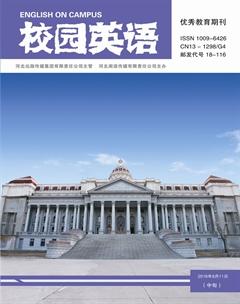Causes for the Global Spread of English
靳亦诗
1. Exploration and colonization
During the 19th century, in some core English-speaking countries like Australia, New Zealand and Cananda, the English-speaking immigrants began to outnumber and dominate both local inhabitants and immigrants speaking other languages. Also in the 19th century, in some other colonies of British Empire, where the number of English-speaking settlers was small, for instance in India, the colonial language policy was a blend of elite English education and popular education in a number of the vernacular languages, which means popular elementary education was carried out in the local vernacular and higher levels education was carried in English.
However, the nial language policy was not the only cause for the spread of English in colonies of British Empire. English was spread through the economic demand. Moreover, when traders, adventurers and sailors turned the informal empire into a formal colony, formal propagation of English started. In this process, language teaching played an important role.
2. Political and economic causes
Since the formal end of British rule in most colonies, English has largely maintained. Actually to some extent it has extended and increasing numbers of people are using it. The direct and indispensable reason of this situation is the rise of the United States to a global dominance in the 20th century, both economically and politically.
The first modern international alliance to allocate great importance to English was The League of Nations which was replaced in 1945 by the United Nations, where the role of the lingua franca became even more importance. As numerous nations came together, they needed to communicate. All through the world, in the proceedings of most international political organizations, English is considered as the most common lingua franca. In many fields, such as science and sports, most international meetings work in English. Enormous amounts of government and private foundations spent money on the propagation of English. For instance, the British Government established the British Council in 1935 to popularize English, not only the language, but also literature, arts, philosophy and science. Undoubtedly, all these activiteis worked in promoting English all through the world.
3. Military causes
It is not easy to evaluate the effect of military in the spread of English. However, there is no doubt that the language of an invading army will have an immediate effect on a community. Evidence can be found in 1990s, when English-speaking troops carried their peace-keeping missions in Bosnia, the Middle East, Central Africa and elsewhere. Related comments, broadcasts and the language used to the cameras were always English. It is hard to say whether this will have a long-lasting influence on the local English awareness. However, it is obvious that local inhabitants had been brought into contact with English culture immediately.
4. Technological causes
In the 17th and 18th century, English was the language of the leading colonial nation, Britain. In the 18th and 19th century, the period of the Industrial Revolution, Britain also had the leading power in the fields of steam-engines, bridge building and large-scale manufacturing and production. Countries which needed these technologies would have to get access to them directly through the medium of English. This inevitably strengthens the position of English in the world.
In the 19th century, due to the new printing technology and new new methods of production and transportation, a truly indepenent was fostered in the USA. Thus most of the news provision was in English.
In the early part of the 20th century, when the telephone became popular, America gradually took the dominating power in telephone technology. Thus inevitably, English was still the language of international communication.
5. Cultural causes
Cultural causes for the spread of English, although not as direct and powerful as economic, political and technological causes, can not be ignored. In the cultural sphere, especially in todays world, cinema takes a significant part. The cinema industry emerged in Europe and America during the 19th century. When sound was added to the technology in 1920s, it was the English which suddenly came to dominate the movie world. Until now, English is still dominating the world movie market. According to the listings in the BFI film and television handbook, over 80 percent of all features films given a theatrical release were in English. Therefore, as the movie industry is greatly welcomed all over the world, the audience will be brought into contact with English language when enjoying English movies.

